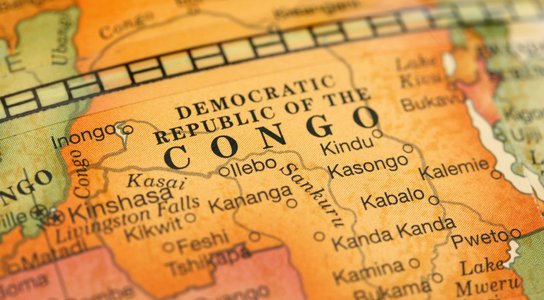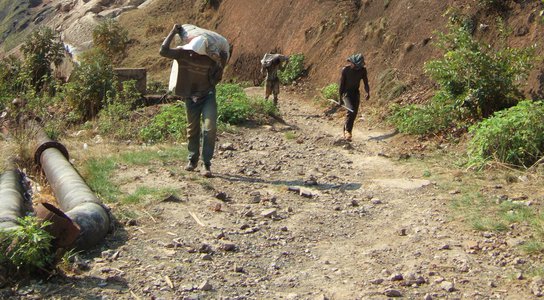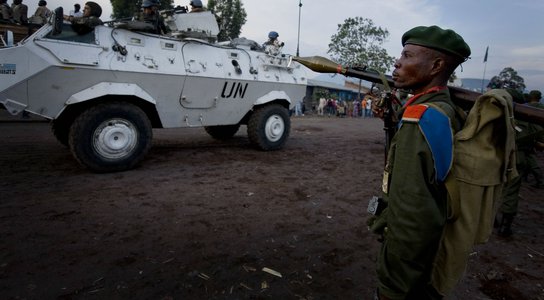Armed groups including elements of the Congolese national army have played on the trade in tin, tantalum, tungsten and gold to fund a brutal war in Eastern Democratic Republic of Congo for more than 15 years. There were an estimated 2.7 million internally displaced people within the country due to ongoing armed conflict in the east, as of 2014.
The region’s natural resource wealth is not the root cause of the violence, but competition over the lucrative minerals trade has become an incentive for some warring parties to continue fighting.
The local population in Congo, and in particular those in North and South Kivu provinces have borne the brunt of a conflict characterised by murder, rape and displacement.
The metals mined in eastern Congo enter global markets and make their way into products such as mobile phones, cars, aeroplanes and jewellery. It is difficult for consumers to know if their favourite products contain minerals that have funded violence overseas.
Recent international efforts to tackle the trade in conflict minerals have focused on requiring companies sourcing from Congo to do checks on their supply chains – known as due diligence – to make sure they are not supporting abusive armed groups through their purchases.
 The Organisation for Economic Cooperation and Development (OECD) has developed comprehensive due diligence guidance for companies using tin, tantalum, tungsten and gold and the UN Security Council has issued similar guidelines. In 2010 the US Congress passed the landmark Section 1502 provision of the Dodd Frank Act, which requires US-listed companies using minerals from Congo or its neighbouring countries to carry out supply chain due diligence.
The Organisation for Economic Cooperation and Development (OECD) has developed comprehensive due diligence guidance for companies using tin, tantalum, tungsten and gold and the UN Security Council has issued similar guidelines. In 2010 the US Congress passed the landmark Section 1502 provision of the Dodd Frank Act, which requires US-listed companies using minerals from Congo or its neighbouring countries to carry out supply chain due diligence.
Twelve African countries, including Congo and Rwanda, have legislation in place requiring companies to undertake supply chain checks. The Chinese Chamber of Commerce (CCCMC) has recently developed guidelines for social responsibility for its companies operating abroad, including a due diligence requirement, and the EU is also in the process of bringing in new regulations in a bid to clean up the conflict minerals trade.
Some steps have been made to clean up the mining sector in Congo too. Congo’s Mining Minister passed a decree in 2012 making it a requirement for all mining and mineral trading companies operating in the country to meet OECD due diligence standards, the international framework for conflict-free mineral sourcing.
Despite these efforts, Global Witness has documented illegal involvement of members of the Congolese army in the trade. Global Witness is campaigning for Congo’s mining law to make OECD due diligence a legal requirement. It must also clearly outlaw any involvement of members of the army in digging, taxing or transporting minerals.
Sign the petition
Help tackle the deadly trade in conflict minerals, often sourced in extreme conditions of exploitation, violence and modern slavery
You might also like
-
Briefing The Current Situation in Eastern Congo

-
Report Putting Principles into Practice
Risks and opportunities for conflict-free sourcing in eastern Congo.
-
Report Coming Clean
Renewed violence in eastern Congo underscores the urgent need for companies and governments to clean up Congo’s minerals trade.